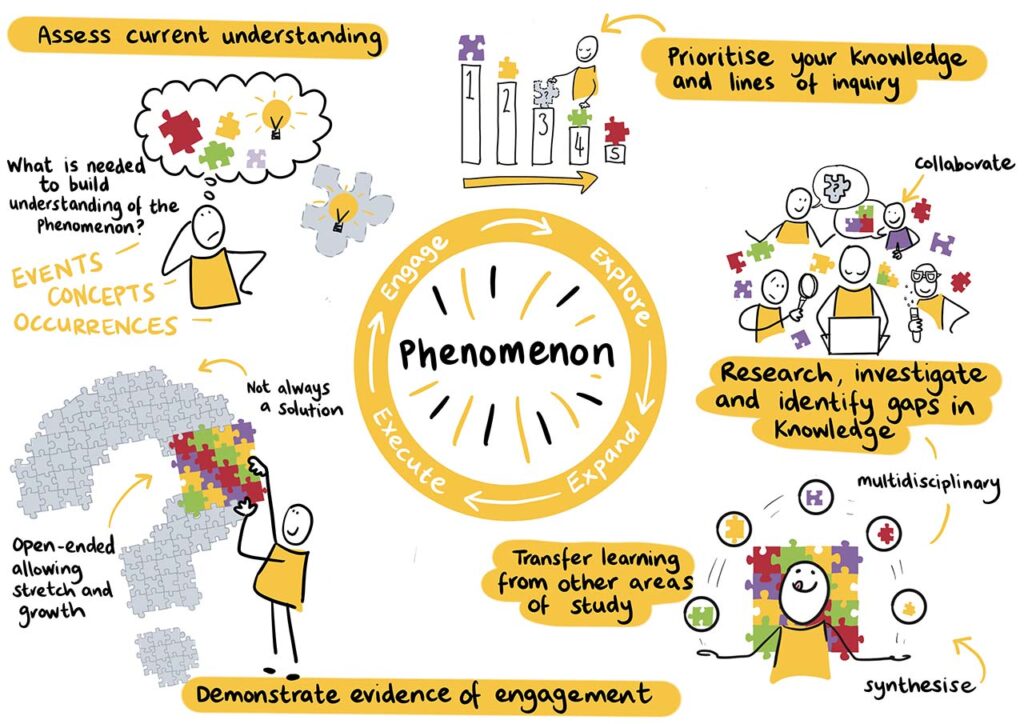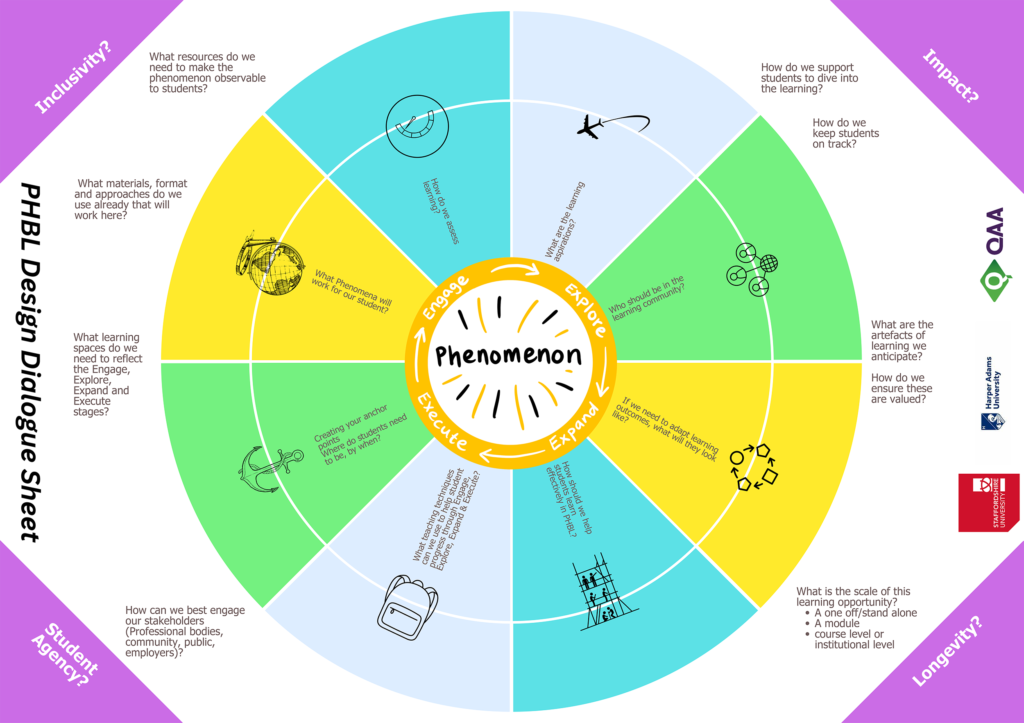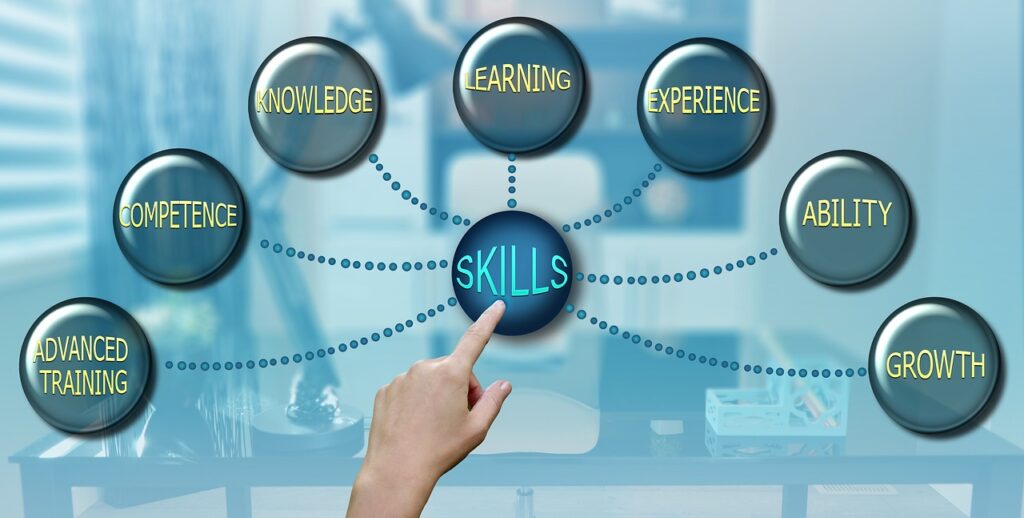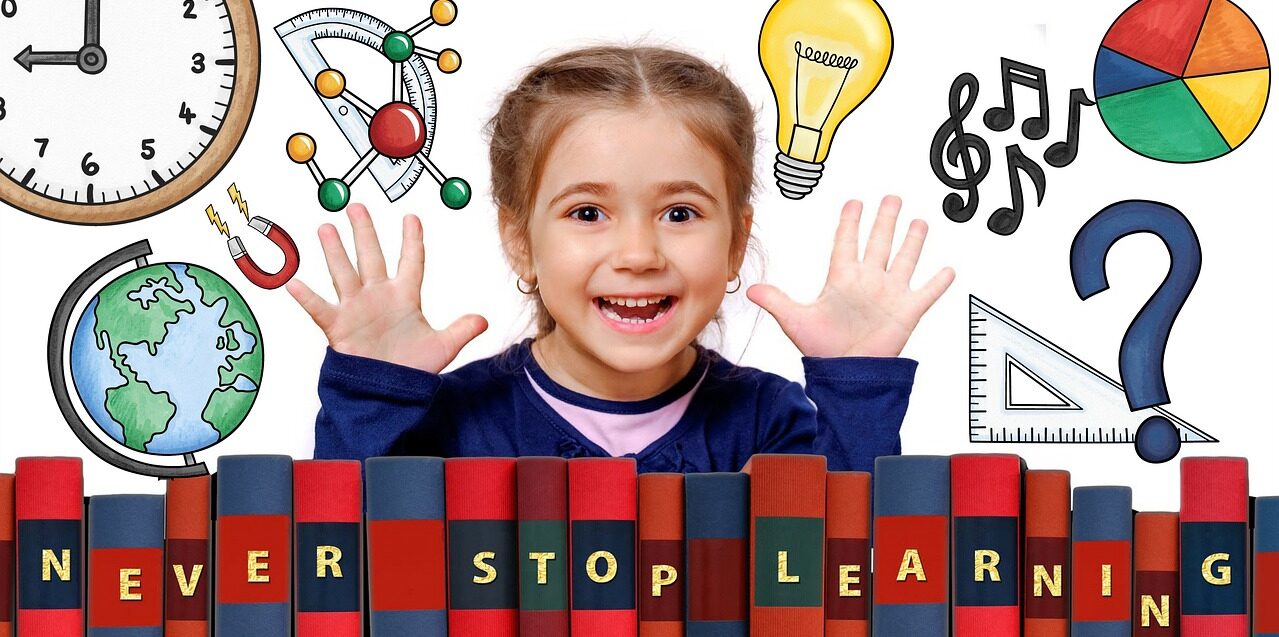CONCEPT & OBJECTIVES
With this project our consortium would like to contribute for the further innovations in the training methods and learning provision by inclusion of the innovative for Bulgaria and Spain phenomenon based learning approach.
We plan to create a further teachers training course at higher educational institutons, based on which they will be able to put special attention to the upgrading of students’ with disabilities and learning difficulties’ green skills and competences related to the climate change and the students’s actions towards environmental protection combining school subjects like science, geography,
mathematics, history into one phenomenon concept.

Source: Staffordshire University / Harper Adams University
The phenomenon based concept exists in the education in Finland and Karelia UAS will invent their know-how and practices to the partners in Bulgaria and Spain. Instead of passively learning abstract or disconnected concepts, phenomenon-based learning presents real life problems and asks learners to actively discover the knowledge and skills required to solve them. Quite often learners are taught the theories and concepts of different subjects but then cannot make the connections between them and how they relate to real life. In other words, learning lacks meaning and context.

Source: Staffordshire University / Harper Adams University
On the other hand, engaging students to solve real life problems, scenarios and events in the school encourages connected learning. The student including those with disabilities (because our training materials will address the inclusion and diversity by implementing the principles of the Universal design of learning to ensure accessibility of the training and learning for all students) can discover how the knowledge from different areas are connected and apply to real life.
Phenomenon-based learning in our case will provide a more meaningful learning experience by
actively engaging learners to solve problems that have a real-world context. It also will help learners to make connections across different disciplines, therefore will lead to avoiding school dropout and increase of the level of academic realisation by all students including those with disabilities. With this instructional approach, students engage in learning that has more context to real life issues, apply knowledge and skills from different subjects, and develop important skills like communication, critical thinking, problem solving, and teamwork.
As such the project will further build the qualification of those students, who are prepared to become teachers or will be used as a further qualification course (microcredential) for existing teachers, who every year continue to upgrade their qualification at PU and UNED.
OBJECTIVES:
- To enhance the qualification of recent and future teachers via use of phenomenon-based learning concept (invented from Finland) for acquisition of green skills by students with disabilities (SWD) in Bulgaria and Spain.
- To prepare teachers on how to teach real-world problems like climate change in an active learning environment using various discovery methods.
- To enable better understanding of climate change knowledge from different subjects: science, geography, mathematics, biology by SWDs.


